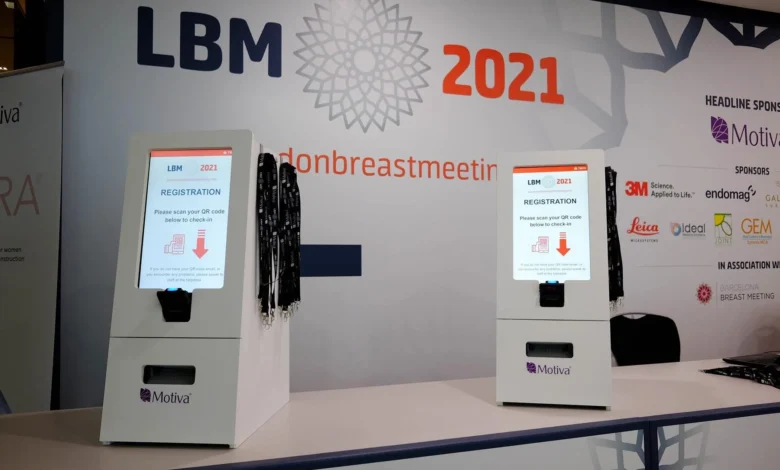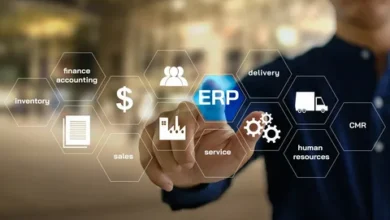Why Sustainable Event Badges Are the Future of Eco-Friendly Conferences

Introductiona
The events industry is undergoing a major shift as sustainability becomes a key priority. With growing concerns about environmental impact, associations, corporate event organizers, and trade show managers are continuously seeking ways to reduce waste and carbon footprints. This study shows that, as per Mair and Laing (2012), sustainable event practices should encourage attendees to actively participate in waste management, minimize energy usage, and support the use of public transportation. Conferences, often seen as waste-heavy events, are now facing scrutiny for their resource consumption. A seemingly small but significant contributor to this waste is the traditional event badge. While they are essential for attendee identification and engagement, traditional badges are often made from plastic, contributing to growing landfill waste and environmental degradation.
As the demand for eco-friendly practices increases, sustainable event badges are emerging as a game-changer in reducing the environmental impact of conferences. This shift not only helps organizations align with environmental goals but also enhances their reputation as forward-thinking, responsible hosts. In this post, we will explore why sustainable event badges are poised to shape the future of eco-friendly conferences.
The Environmental Toll of Traditional Event Badges
Waste Generation and Longevity
Event badges, often made from plastic and paired with non-recyclable lanyards, contribute significantly to the waste generated at conferences. The majority of these materials end up in landfills after each event. This waste problem is not just confined to the badge itself; plastic badge holders and lanyards, though useful, often have a long decomposition timeline—plastics can take decades or even centuries to break down fully. The study offers valuable guidance for shaping policies and strategies aimed at reducing environmental impacts, while also providing practical insights to help managers implement effective and accessible solutions.
For event organizers, managing this waste becomes a burden. The sheer volume of badges used at large events can accumulate quickly, leading to a significant environmental impact. Traditional event badges, while functional, fail to address the growing concern about waste management in large-scale events.
Carbon Footprint of Badge Production
The production of plastic badges comes with a hefty carbon footprint. Manufacturing plastic materials requires energy, and transporting these badges to event locations only adds to the carbon emissions. This is particularly concerning for event organizers who are striving to minimize their overall environmental impact. The mass production and shipping of event badges are a significant yet often overlooked contributor to an event’s carbon footprint.
As the world moves towards greener practices, the events industry faces pressure to adopt alternatives that reduce the environmental toll. Sustainable event badges are a solution that aligns with the global shift toward minimizing waste and carbon emissions.
The Evolution of Sustainable Badge Solutions
Biodegradable and Compostable Materials
The demand for eco-friendly event badges has led to the emergence of biodegradable and compostable materials as alternatives to plastic. Materials like seed paper, recycled paper, and plant-based plastics are being used to create badges that are both sustainable and functional. These materials can be composted after use, significantly reducing the environmental burden left behind by traditional plastic badges.
Seed paper, for instance, is a particularly innovative material. After the event, attendees can plant their badges, leading to the growth of flowers or herbs, thus offering both environmental and emotional value. Such sustainable badges are a great way to engage attendees in eco-friendly initiatives while also contributing to a greener future.
Reusable and Durable Badge Systems
Sustainability is not just about using eco-friendly materials; it’s also about rethinking how event badges are used. Reusable badges are becoming more common, offering a practical solution to the growing waste issue. These badges are designed for multiple uses and can be easily cleaned and reprogrammed for different events. The durability of these systems ensures they have a long lifecycle, reducing the need for single-use plastic badges.
For event organizers, the long-term cost savings of reusable badge systems can be substantial. Instead of ordering thousands of new badges for each event, reusable badges can be used repeatedly, providing both economic and environmental benefits.
Digital and Smart Badges
One of the most innovative approaches to sustainable event badges is the introduction of digital and smart badges. These badges rely on mobile credentials, QR codes, and digital apps to replace the need for physical materials altogether. Attendees can access all the event information they need directly through their smartphones, reducing the waste generated by traditional badges.
Digital badges also open up new opportunities for enhancing the attendee experience. With real-time updates, personalized schedules, and networking features, these smart badges provide a more interactive and engaging conference experience.
Latest Innovations in Eco-Friendly Badging
On-Demand and Direct Thermal Printing
One significant innovation in sustainable event badges is the use of on-demand and direct thermal printing. Instead of printing thousands of badges in advance, these systems print badges only when needed. This reduces overproduction and minimizes ink waste, making the entire process more eco-friendly.
By printing badges on-site, event organizers can ensure that no resources are wasted on unclaimed or unused badges. This method also allows for last-minute adjustments, ensuring that only the necessary badges are printed, thus cutting down on unnecessary materials.
Tear-Resistant, Plastic-Free Designs
Recent advancements in badge design have made it possible to create durable, tear-resistant badges without the need for plastic holders. These badges are made from sustainable materials such as recycled paper or durable fabric, offering the same level of reliability as traditional plastic badges. Not only does this reduce plastic waste, but it also ensures that the badges can withstand the demands of busy event environments.
Integration with Event Technology
As technology continues to transform the events industry, badges are becoming more integrated with event tech. QR codes and NFC (near-field communication) technology can be embedded into sustainable badges, allowing for real-time updates and seamless interactions with event apps. These smart badges can provide attendees with personalized schedules, access to event content, and instant networking opportunities, all while reducing the need for printed materials.
Integrating badges with event technology offers a streamlined experience for both attendees and organizers, reducing waste and improving event engagement.
Tangible Benefits for Conferences and Organizers
Measurable Waste and Emissions Reduction
Adopting sustainable event badges brings immediate benefits in terms of waste reduction. By switching from plastic to biodegradable or reusable materials, organizers can significantly decrease the amount of waste generated at their events. This reduction in waste directly contributes to lowering the overall environmental impact of the event. Moreover, the carbon footprint of the event is reduced by minimizing the production and transportation of plastic badges.
For event organizers, this translates into a more sustainable and environmentally responsible event that aligns with the growing demand for green practices in the corporate world.
Cost Savings Over Time
Though the initial investment in sustainable badges may be higher than traditional badges, the long-term cost savings are undeniable. Reusable badges, in particular, can be used for multiple events, eliminating the need for continuous badge production. Additionally, with on-demand printing, organizers can reduce costs related to overproduction and shipping.
By incorporating sustainable badges, event organizers not only contribute to environmental sustainability but also create a more cost-efficient event management system.
Enhanced Brand Reputation and Attendee Engagement
Attendees are becoming more environmentally conscious, and they appreciate events that prioritize sustainability. By implementing eco-friendly badge solutions, organizers can enhance their brand reputation and engage attendees in meaningful ways. Whether it’s through offering plantable seed paper badges or introducing smart badges with digital features, these innovations resonate with attendees and help to build lasting loyalty.
Sustainability is no longer just a trend—it’s a crucial part of how brands are perceived. By leading the way with sustainable event badges, organizers can position themselves as responsible and forward-thinking, further strengthening their relationship with attendees and sponsors.
Overcoming Challenges in Adopting Sustainable Badges
Initial Investment and Logistics
While the long-term benefits are clear, adopting sustainable event badges can come with initial challenges. The upfront costs of switching to eco-friendly materials or implementing reusable badge systems may deter some organizers. Furthermore, the logistics of collecting, cleaning, and reusing badges require careful planning and organization.
However, the investment in sustainable badges is an investment in the future of the event industry. As more organizers make the transition, these challenges will become easier to manage, and the benefits will outweigh the initial hurdles.
Technology Integration and User Experience
For digital badges and smart badge systems to be successful, they need to integrate seamlessly with existing event management software. Ensuring that these systems work smoothly with registration platforms and attendee apps is essential for a positive user experience. Event organizers must prioritize ease of use and compatibility with other technologies to ensure that attendees have a seamless experience.
The Future Outlook: Sustainable Badges as Industry Standard
Regulatory and Certification Trends
As sustainability becomes more integral to event planning, organizers can expect increasing pressure from both regulators and attendees to adopt eco-friendly practices. Certification programs and sustainability standards are likely to become more common, offering recognition for events that prioritize environmental responsibility. In this context, sustainable event badges will become a key component of event certifications, further solidifying their place in the industry.
Influence on Broader Event Sustainability Practices
Sustainable event badges are just one step in the broader push for greener conferences. As more organizers adopt eco-friendly badges, this shift is likely to influence other areas of event planning, from catering to venue selection. By making sustainable badges the norm, event organizers can help drive wider adoption of sustainable practices across the industry.
Conclusion
The shift toward sustainable event badges is not just a passing trend; it’s a fundamental change in how the events industry approaches sustainability. As waste reduction and environmental consciousness become central to the values of event organizers, sustainable event badges offer a tangible solution to reduce the carbon footprint and waste associated with conferences. By embracing eco-friendly badge solutions, event organizers can not only improve their sustainability practices but also enhance their reputation and engagement with attendees.
Event organizers are in a unique position to lead the change toward more sustainable conferences. It’s time to take the first step toward eco-friendly events by adopting sustainable event badges. Embrace innovation, reduce waste, and contribute to a greener future for the events industry.




